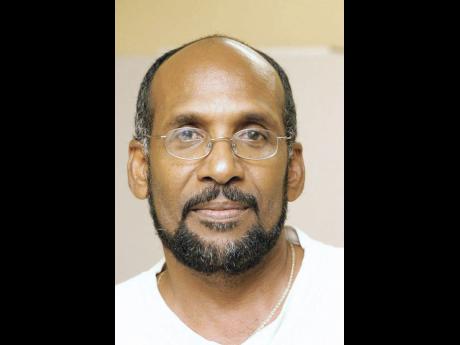Mark Wignall | Corruption has utility value
It was during an election campaign and the politician had asked me to conduct a study for him. Two days before, I had delivered to him a small 30-page report. I had sent him an invoice for $250,000. His secretary had called and informed me of the immediate availability of the funds.
I was led into his office. There were two other people seated in chairs by his desk. He greeted me and said, "Mr Wignall, I hope you don't mind cash."
It caught me by surprise, but I immediately answered, "OK, no problem." From a box on his desk he scooped out the cash, placed it in a large envelope then folded it with an elastic band for ease of carriage. I handed him the receipt I had drawn up, but his hand motion indicated his disinterest.
"I hope the numbers will help you," I said as I left.
At election-campaign time, there are many business entities and owners of companies who prefer to donate cash to politicians. Why cash? Few politicians will refuse the cash, and at many stages down the stream, one is unsure if the cash is newly rinsed.
And, we are well aware, during and immediately after the last general election, the People's National Party (PNP) had attracted attention where some insiders were asserting that a dark cloud accompanied the funding of the PNP's campaign activities.
The head of National Integrity Action, Trevor Munroe, has told us quite recently that corruption is not cultural in Jamaica. To me, that is like breaking down the word 'cultural' and then using a semantic twist to provide corruption with its cultural escape clause.
"Mi nah tek nuh job weh nuh hustling nuh deh," a 30-year-old man said to me about 10 years ago. All of his friends in earshot of his statement were in agreement.
CONSTANT REMINDER
Some time ago, the late Wilmot 'Motty' Perkins correctly declared that corruption had utility value in Jamaica. A constant reminder of that exists outside almost every tax collectorate in our urban centres.
The focus on corruption in politics is quite justified because of the fact that the public purse is involved. But it exists in journalism, in the police force, in various parent-teacher associations, in the Church, in many civic bodies, and in the heartbeat of many Jamaicans.
It is not that the 'typical' Jamaican wakes up in the morning looking forward to committing acts of corruption throughout the day. It is that at many junctures in his daily life, he is forced into the reality that playing by the rules will constantly place him at the back of the line and at a distinct disadvantage.
The ghost of Trafigura returns
The return of the ghosts of Trafigura will add to the PNP's woes as scrutiny is publicised. Lest we forget, the Government had been involved in a contract with Trafigura Beheer, who were lifting Nigerian oil on our behalf. In 2006, it was determined that Trafigura had donated $31 million to the PNP.
Why was this donation made? What possible reason could be given for this transfer of funds from the Dutch company to an officer of the PNP's bank account? Focus is also being moved to the monies spent on the bushing work in the days leading up the last local government elections.
Certainly, we would love to hear the proximate justification for this Jamaica Labour Party Government's spend; that is, if it extended beyond the need to make party supporters at street level wallow in public funds.
SHELL COMPANY
Some years ago, a man of influence in the development of middle-class housing solutions offered to create a shell company in development, then make a building application to a particular parish council.
"I will set you up so that you personally witness the process. Yuh can't get approval if yuh don't pay off a man," he said to me. I backed off as I saw the potential negatives.
Some parish councillors believe they are unfairly targeted. What about the councillor who arranged a small contract with a party supporter some years ago?
The supporter completed the job, and after the respective agency drew the cheque in his name, the councillor followed him to the bank, took all the cash from him, gave the supporter what he believed would be enough to pay workers, then made off with the lion's share.
There can be no doubt that much governmental waste has as a causal factor systemic corruption in the structures inside the civil service. Sadly, more so than say, 30 years ago, people are now willing to express their belief that even that bastion of fairness, the judiciary and the justice system, cannot escape the broad societal taint.
Every newly elected Government recognises corruption as waste and as a significant growth-inhibiting factor, but pays only lip service to changing the culture.


